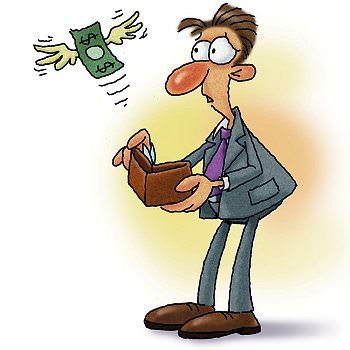If you are not earning a lot of money or find yourself in debt, you need to take action to stay in control of your finances. Read this article for some helpful tips to save money and control of your personal finances .
Tips to Save Money and Control of your Personal Finances
 Living on a budget is the best way to control of your personal finances. You should take the time to do the math and figure out how much money you can afford to spend every month. Estimate your monthly income and expenses and make sure you are not spending more than what you earn. Certain expenses cannot be avoided, such as your electricity bill, car payments or mortgage. You should be able to reduce other expenses, including the money you spent on groceries, clothing, gas and entertainment. Start keeping a journal of your daily expenses to keep track of the money you spend and find out which habits you cannot afford. You might find that smoking is costing you a fortune or that you cannot afford to keep driving your car everywhere.
Living on a budget is the best way to control of your personal finances. You should take the time to do the math and figure out how much money you can afford to spend every month. Estimate your monthly income and expenses and make sure you are not spending more than what you earn. Certain expenses cannot be avoided, such as your electricity bill, car payments or mortgage. You should be able to reduce other expenses, including the money you spent on groceries, clothing, gas and entertainment. Start keeping a journal of your daily expenses to keep track of the money you spend and find out which habits you cannot afford. You might find that smoking is costing you a fortune or that you cannot afford to keep driving your car everywhere.
If you are in debt, get in touch with your creditors to establish payment plans. Explain that you are in a bad financial situation and that you intend on paying back your debt. Most creditors will be willing to drop late fees and work on establishing a payment plan for you. Once you agree to a plan, you should make your payments on time. Include these payments into your budget. You might have to make a few changes to your lifestyle to get out of debt; stop using your credit cards and cancel the lease on your car if this vehicle is above your means.
Put some money aside if you can. Ideally, you should be saving 25 percent of your paycheck every month. Open a savings account to get started and diversify your investments. You could invest in real estate, stocks, bonds, foreign currencies, a life insurance policy and even a retirement plan. Do additional research about different investment opportunities and get advice from professionals if you need to. Look for safe investments that will pay out in the long term and think about taking risks once you can afford to. Look at putting this money aside as a way of financing some future projects such as buying a house or retiring.
If you cannot afford to put a lot of money aside, you should still do your best to save some money for emergencies. If you do not have a little cash put aside for unexpected expenses, you will probably find yourself borrowing money, raising the limit on your credit cards or getting a payday loan; these are bad financial decisions and will more than likely worsen your debt. Even if putting some money aside requires some sacrifices, it is in your best interest to do so.
Use these tips to remain in control of your personal finances. Keeping track of your spending might be hard at first, but it will soon turn into a habit.
